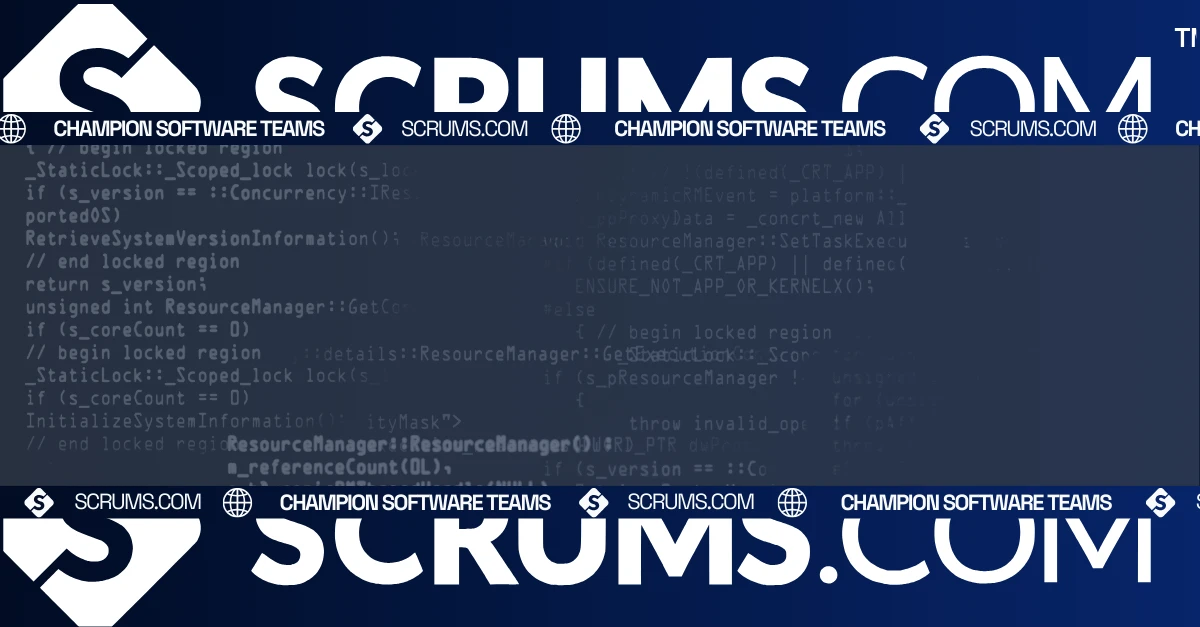Eclipse IDE: The Open-Source Development Tool
Introduction to Eclipse IDE
Eclipse IDE is a widely renowned open-source Integrated Development Environment (IDE). Initially created to cater to Java development, Eclipse has evolved into a robust, multi-language machining platform that includes support for C++, PHP, Python, and more. Its powerful plugin ecosystem has made Eclipse a preferred tool for many software development companies looking to streamline their workflows across diverse programming languages and deployment environments.
Offering unique capabilities such as version control, cloud integration, and app testing, Eclipse is a favorite for enterprises and developers alike. The IDE’s cross-platform compatibility boosts its appeal, enabling developers to code and compile across systems seamlessly. Businesses that adopt Eclipse experience gains in productivity, speed-to-market, and efficient management of agile workflows.
Why It's Relevant: With its scalability, plugin support, and cloud-ready features, Eclipse continues to be a crucial tool for businesses striving to stay competitive.
What is Eclipse IDE?
Eclipse IDE is an open-source development tool that facilitates coding, testing, debugging, and deployment within a single interface. Originally launched by IBM in 2001 and now managed by the Eclipse Foundation, the platform was first built to enhance Java development but has since expanded to support multiple programming languages, including C, C++, Python, and HTML5.
The IDE has evolved to accommodate the complex needs of modern web, desktop, and mobile app development. Eclipse’s signature asset is its plugin architecture, which allows developers to customize their environment by adding any tools they need for specific languages or projects. As an open-source solution, Eclipse IDE saves businesses thousands in licensing costs, offering enterprise-level capabilities without the price tag of many proprietary solutions.
Eclipse is ideal for team-based development, DevOps workflow automation, and cloud infrastructure management, further enhanced by its support for cloud IDEs and integration with CI/CD pipelines, making it a staple in development environments spanning diverse use cases.
Core Features and Functionalities
1. Multi-Language Support
While Eclipse is well known for its Java IDE, it also offers support for C/C++, Python, PHP, JavaScript, and HTML5 through a wide range of plugins.
Business Value: Developers can use one environment for multiple projects, reducing tool-switching overhead and improving team collaboration—saving businesses both time and cost.
2. Plugin Marketplace
Eclipse boasts an extensive plugin ecosystem thanks to its modular architecture, allowing developers to customize their workspace with specific tools, frameworks, and functionalities. Popular plugins include tools for API integration, mobile development, cloud environments, and Kubernetes management.
Business Value: Teams can integrate enterprise-specific features required for scaling, deployment, and management without the need for complex integration across different platforms, reducing development cycles and improving feature rollouts.
3. Cross-Platform Compatibility
Eclipse IDE is compatible with Windows, macOS, and Linux. This makes it a valuable tool for teams working in cross-platform environments or developing applications that must be deployed across multiple systems.
Business Value: Teams can adopt Eclipse IDE regardless of their native operating systems. Rolling out platform-specific updates and applications becomes significantly easier with centralized development tooling, furthering collaboration.
4. Version Control Integration (Git, CVS, Subversion)
Eclipse Simplifies version control: by integrating directly with Git, CVS, and Subversion to offer source control, helping teams manage, track, and revert code changes seamlessly.
Business Value: Minimizes integration headaches by providing version control within the IDE. With integrated Git workflows, businesses can streamline development and maintain clean code for faster deliveries.
5. Built-in Debugging and Testing Tools
Eclipse offers sophisticated debugging support, enabling full control of breaks, runs, and inspections from within the IDE. Additionally, a wide array of testing plugins is available for frameworks like JUnit.
Business Value: Pinpoint issues early in development with comprehensive debugging, ultimately reducing costly post-deployment bugs and rework.
6. Remote Development Support (Cloud IDE & SSH Access)
Eclipse IDE supports remote development via cloud hosting solutions or SSH, making it easier for distributed teams to access their environments from anywhere.
Business Value: Teams can collaborate across time zones without the need for complex setups, reducing infrastructure costs while keeping development smooth and aligned.
7. Rich Build Automation Tools
Eclipse supports build automation via integrations with tools like Maven, Gradle, and ANT. This allows seamless management of code dependencies, builds, and large-scale projects, particularly in DevOps environments.
Business Value: Automating builds not only saves time but also ensures that the software fits into a pre-structured environment designed for scalability, reliability, and timeliness.
Benefits for Businesses and Development Teams
For Businesses:
- Reduced Costs: Being an open-source platform, Eclipse offers businesses the capabilities of premium IDEs without expensive licensing fees. This allows the budget to be reallocated toward other resources that can improve overall ROI.
- Faster Time-to-Market: With powerful debugging, smart code completion, version control, and build automation, businesses can accelerate the software development process, pushing products faster into the market.
- Cross-Platform Coordination: Eclipse supports various operating systems, making collaboration between global or remote development teams easier. This helps push initiatives in multinational companies or businesses with distributed teams.
- Automation and Scalability: Eclipse seamlessly integrates with tools for CI/CD, cloud infrastructure, and build automation, giving enterprises a powerful edge in engineering scalable solutions that fit the needs of today’s cloud-native and DevOps frameworks.
For Developers:
- Custom Development Environment: Eclipse IDE’s plugin ecosystem enables developers to fully customize their development environment, allowing them to install only the specific tools and features they need.
- Multi-Language Support: Supporting over a hundred languages, Eclipse is an invaluable tool for developers working on diverse projects without switching between different IDEs for language-specific functionalities.
- Seamless Collaboration: Integrated version control systems ensure that developers can collaborate easily across geographies, streamlining coordination in large projects or tech-based startups that require rapid development cycles.
- Agile Compatibility: Eclipse integrates easily with various Agile tools, enabling real-time collaboration, feedback loops, and continuous improvement for feature development.
Use Cases and Applications
1. Web Application Development
Eclipse supports both back-end and front-end languages, making it ideal for web development teams that balance frameworks like Java, JavaScript, and HTML5. Development teams can use Eclipse for anything from building secure e-commerce systems to progressive web apps (PWAs).
2. Enterprise Java Applications
Eclipse’s vast plugin support for enterprise tools like Maven and Spring allows businesses to develop, maintain, and scale large enterprise Java applications, ensuring compliance, security, and speed.
3. DevOps: CI/CD Pipelines
Thanks to pre-baked integration with build tools like Jenkins, Docker, and Kubernetes, Eclipse IDE provides feature support for DevOps teams working on automating deployment and streamlining CI/CD pipelines.
Industry Examples:
- Fintech: Eclipse enables developers working in fintech to create advanced, secure, and scalable applications using Java and Python. Financial institutions worldwide rely on this IDE for its versatility combined with enterprise security measures.
- Healthcare: Organizations within healthcare choose Eclipse to develop applications that manage patient records, ensuring compliance with privacy standards such as HIPAA through robust testing and debugging.
- E-commerce: Teams working within e-commerce leverage Eclipse's plugin marketplace for seamless integration with microservices, payment gateways, and cloud-native deployment platforms to ensure maximum customer engagement and sales.
Integration Capabilities and Ecosystem
Software and Cloud Integration
- Cloud Integration: With support for AWS, Azure, and Google Cloud, Eclipse makes deployment faster and easier for businesses operating on the cloud.
- Container Adoption: Through plugins, Eclipse allows developers to manage application containerization using Docker and Kubernetes for quicker, scalable deployments in cloud-native environments.
- API Integrations: Developers can use XML, JSON parsers, and REST API integrations to seamlessly connect their projects to third-party services or internal data sources.
Plugin Ecosystem
Eclipse boasts one of the largest collections of plugins, making it easy for developers to add capabilities such as:
- Database Management
- Mobile Development (Android)
- REST APIs and Web Services
- Code Quality Assurance (e.g., PMD, Checkstyle)
Comparison with Alternatives
Eclipse vs IntelliJ IDEA
While IntelliJ IDEA offers more out-of-the-box features for enterprise users, Eclipse remains a superior choice for teams that require extensibility and best-in-class plugin support, especially for Java projects.
Eclipse vs Visual Studio (VSCode)
Similarly, VSCode excels in lightweight web development, but Eclipse’s richer Java framework and deep Git integration make it the preferred option when working on large, corporate-level software projects.
Getting Started with Eclipse IDE
- Download Eclipse IDE: Start by downloading the latest version of Eclipse IDE from the official website.
- Install Java Development Kit (JDK): If you're working in Java, make sure you have the JDK installed and configured.
- Set Up Plugins: Once your basic setup is ready, consult the Eclipse Marketplace to download essential plugins based on your project needs, such as Maven, JUnit, and Git integration.
- Configure Version Control: If working in teams, configure Git or Subversion repositories for version control.
- Start Coding: Begin developing your project using language-specific templates and integrated debugging, refactoring, and testing tools.
For detailed tutorials, check out the official Eclipse documentation here or sign up for a webinar to get step-by-step guidance.
Related Tools and Resources
- Eclipse vs. IntelliJ IDEA: Which is Best for Java Developers?
- Using Eclipse for Docker and Kubernetes Development
- Eclipse IDE Plugin Essentials for Efficient Agile Teams
Explore Related Software Development Tools
FAQs
We've got you covered, these are some common questions we receive. Not seeing the answer to something?...
Yes, Eclipse is free and open-source, making it an ideal choice for both open-source and commercial projects.
Yes, by installing the PyDev plugin, Eclipse offers robust support for Python development.
Eclipse integrates with Git, Subversion, and CVS, allowing seamless version control management directly within the IDE.
Absolutely! Eclipse’s vast plugin ecosystem and integration with enterprise-build tools like Maven make it perfect for large, scalable software projects.
Yes, Eclipse supports cloud integrations with AWS, Azure, and more—ideal for deploying large-scale cloud-native applications.
Yes, Eclipse integrates with several project management and CI/CD tools like Jira and Jenkins, making it suitable for Agile teams.
Explore Software Development Blogs
The most recent trends and insights to expand your software development knowledge.






